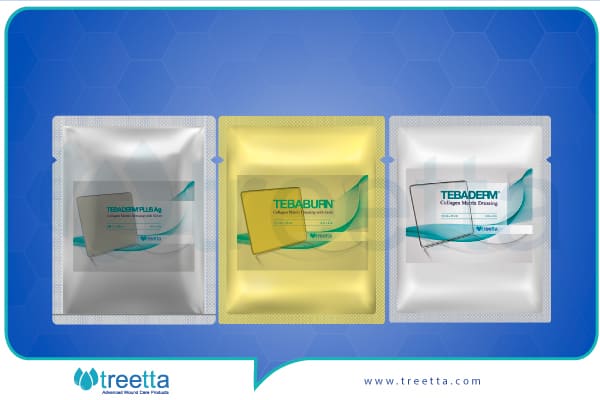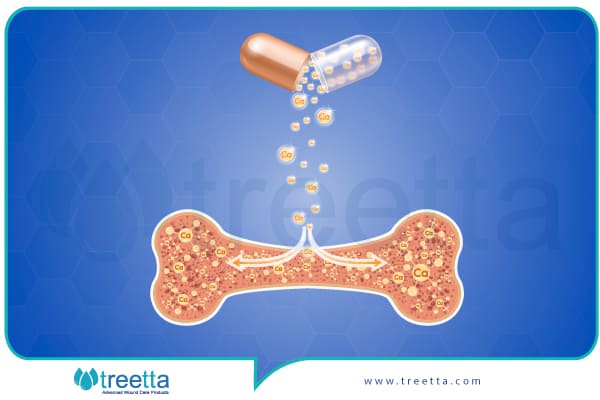Articles
How Does Collagen Help In The Wound Healing Process?

Collagen In Wound Healing Process?
Collagen is a naturally occurring protein in the human body that plays a crucial role in wound healing. It is the most abundant protein in the extracellular matrix, which provides structure and support to the tissues.
Collagen is also an essential component of the skin, tendons, ligaments and bones. In the wound care industry, collagen-based products have gained significant attention due to their potential to accelerate wound healing and promote tissue regeneration.
Collagen-based products are used in various stages of wound healing, from initial debridement to final closure. These products can be derived from animal sources or synthesized using recombinant DNA technology.
Animal-derived collagen is obtained from sources such as bovine or porcine hides, while recombinant collagen is produced by genetically modifying bacteria or yeast to produce collagen molecules.
Collagen-based products work by providing a scaffold for cells to adhere and migrate over. They also promote the formation of new blood vessels, which is essential for wound healing. Collagen based dressings are particularly used for chronic wounds such as diabetic foot ulcers and pressure ulcers, where healing is slow and the wound is prone to infection.
These dressings can help prevent bacterial growth and provide a moist environment for that wound to heal.
One of the most promising applications of wound care products in wound care is the treatment of burns. Collagen-based dressings can provide a temporary barrier over the burn wound while promoting tissue regeneration.
They can also prevent scarring by promoting the formation of new collagen fibers that are more organized and less dense than the scar tissue.
Collagen based products have also shown promise in promoting tissue regeneration in surgical wounds. These products can be used as a scaffold for cells to grow on during tissue engineering procedures, such as bone grafting and cartilage repair.
Collagen-based scaffolds can also be used to deliver drugs directly to the site of injury, which can accelerate healing and reduce inflammation.
When collagen is applied as a wound dressing, it creates a physical barrier that helps to prevent infection and promote a moist wound environment, which is essential for wound healing. The collagen also provides a source of nutrients and signaling molecules that stimulate the cell growth and proliferation.
Collagen based wound care products have several advantages over traditional dressings. Firstly, they are bio compatible, meaning they are less likely to cause an immune response or an allergic reaction. Secondly, they promote faster healing times due to their ability to provide structural support and stimulate cell growth.
Thirdly, they can be tailored to specific wound types and sizes, making them a versatile option for a variety of applications.
Collagen-based wound care products can also be combined with other therapies, such as growth factors or antibiotics, to further enhance their healing properties. For example, collagen dressings can be impregnated with antibiotics to prevent infection or growth factors to promote angiogenesis.
treetta products having the composition of Collagens:
- TEBADERM Collagen Matrix is a human skin-liked structure, which accelerates the wound healing process and manages the wound moisture by active ingredients such as collagen and other bio-polymers in the dressing.
- TEBADERM PLUS Ag is a collagen matrix dressing containing silver crystalline nanoparticles, which after activation, is gradually released from the Three-dimensional scaffold dressing and brings a sustained release formulation that retains its antimicrobial effects for up to three days.
- TEBABURN dressing has gold nanoparticles that quickly reduce wound inflammation. Furthermore, the presence of collagen and other bio-polymers in the dressing, stimulates the growth and mitosis of fibroblast cells and increases cell migration, which accelerates the wound healing process.
- TEBAGRAN is composed of active collagen-based biopolymers. The absorptive nature of TEBAGRAN can effectively absorb wound exudate and forms gel. It does that by releasing biopolymers such as collagen and alginate on the wound surface.
- TEBAGRAN PLUS Ag consists of collagen and silver nanoparticles that are effective on different stages of wound treatment such as inflammation, infection, and granulation. Sustained release of silver has a bactericidal reaction providing effective management of wound odor and exudate.
In conclusion, collagen based wound care products offer a promising alternative to traditional dressings for the management of chronic or non-healing wounds. Their biocompatibility and ability to promote tissue growth make them an effective and safe option for patients with difficult-to heal wounds.
As research continues in this area, we can expect further advancements in collagen-based wound care products that will continue to improve healing experiences for the patients.



